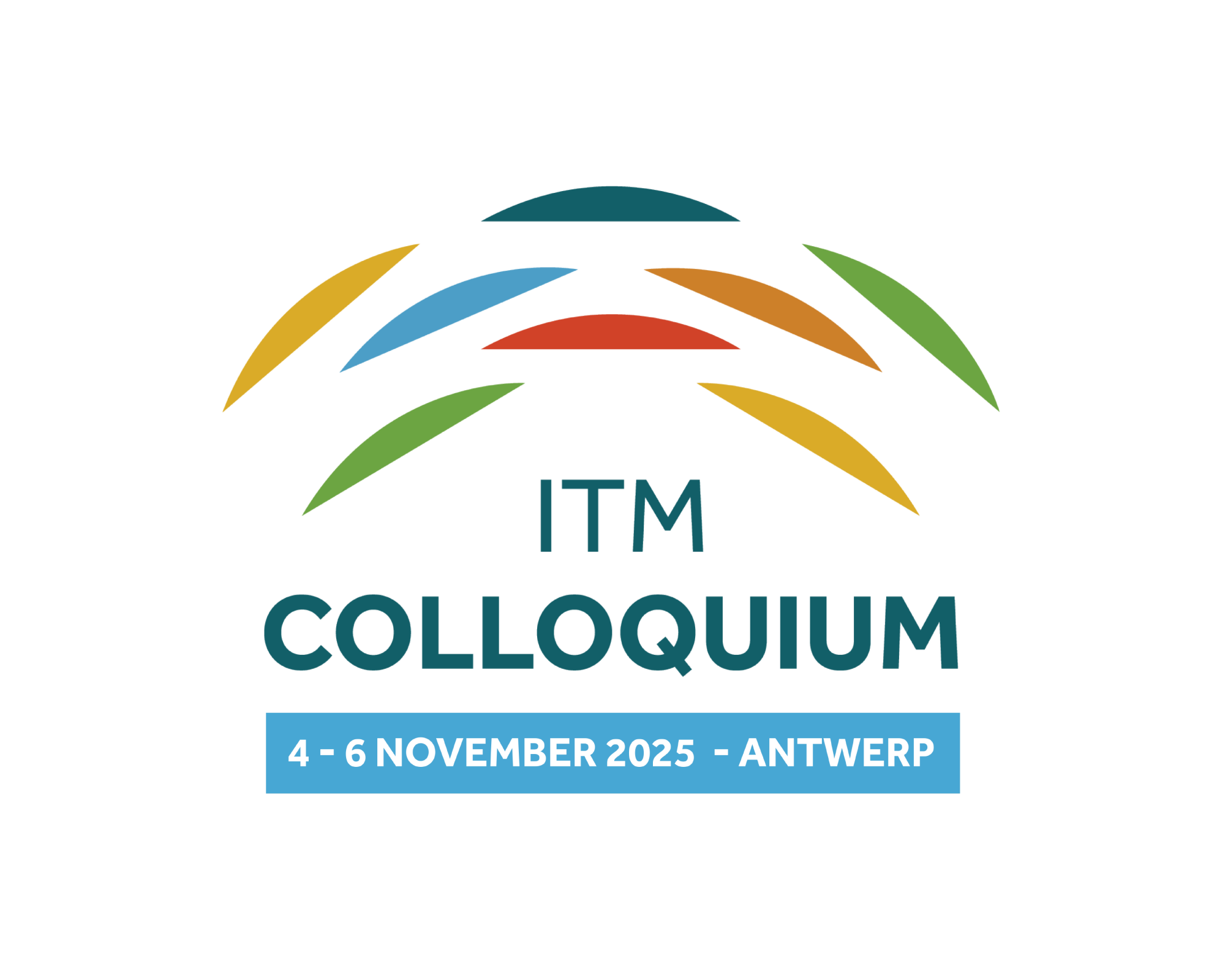Collaboration and innovation take centre stage at ITM’s 2025 Colloquium

As new pathogens and health threats continue to cross borders, innovation in infectious disease research has never been more essential. This sense of urgency will take center stage at ITM’s 2025 Colloquium, themed “Breaking Boundaries: Innovations in Infectious Disease Research.”
Over three days, scientists, policymakers, healthcare professionals, and innovators from around the world will come together to share insights, evidence, and ideas on shaping the future of infectious disease control. The programme spans One Health, diagnostics, surveillance, and advances in clinical and social sciences, creating a truly interdisciplinary space for collaboration.
More information
Colloquium websiteTuesday, 4 November: Opening Day
The opening evening will set the tone for the days ahead — bringing together voices from research, policy, and practice to reflect on how collaboration can drive real-world health impact.
Wednesday, 5 November: Scientific Exchange & Innovation
Surveillance and Outbreak Control
Using data and genomics to improve outbreak preparedness
The opening session explores how analytics and microbial genomics can strengthen responses to emerging pathogens. Topics include quantitative filter forensics for outbreak detection (Prof. Jeffrey Siegel, University of Toronto), field research on cutaneous leishmaniasis in conflict zones, and genomic surveillance of Leishmania and Vibrio cholerae. Other speakers will discuss antimicrobial resistance monitoring and urban dengue modelling, showing how genomic, ecological, and spatial tools can support early warning systems.
Omics, Molecules and Systems Biology
New molecular and computational tools transforming tropical medicine
This session highlights molecular and computational breakthroughs that are redefining our understanding of tropical diseases. Presentations include AI- and CRISPR-based research on Mycobacterium tuberculosis (Dr. Oren Tzfadia, ITM), adaptive immune repertoire sequencing for dengue, and next-generation sequencing for malaria genomic surveillance. Additional studies on Leishmania drug tolerance, Plasmodium vivax diversity, and vector-targeted interventions illustrate how multi-omics and structural biology are accelerating discovery.
Accessible diagnostics and health technologies
Innovating for low-resource settings
The afternoon sessions turn to technologies designed to make healthcare more equitable. Dr. Gombe (The Aurum Institute, Zimbabwe) will share strategies for bringing new health products to market across sub-Saharan Africa. Other speakers will present breath-based malaria tests, tropicalized blood-culture systems, and multiplex PCR diagnostics for STIs in high-risk populations — innovations aimed at ensuring that effective care reaches everyone, everywhere.
Showcasing Health Innovation Technologies
Local solutions with global impact
The innovation showcase will feature digital and self-sampling tools such as Collect2Know, myAFYA, and mobile clinical decision apps designed for refugee settings. These projects demonstrate how locally led innovation can be adapted and scaled to strengthen diagnostic and healthcare systems worldwide.
Thursday, 6 November 2025: Integration & Policy
One Health Approaches for Disease Control
Connecting human, animal, and environmental health
Keynote speaker Prof. Fichet-Calvet (Bernhard Nocht Institute for Tropical Medicine) will explore the ecological interfaces of zoonotic diseases. Complementary research will highlight antimicrobial resistance surveillance, wildlife pathogen detection, and climate-linked disease emergence. Case studies from Guinea, Zimbabwe, and the DRC will illustrate how the One Health approach can come alive through data, molecular tools, and field-based policy frameworks.
Quality of Care and Treatment Innovations
Translating research into better patient outcomes
This session focuses on clinical research that directly improves patient care. Dr. Jennifer Furin (Harvard Medical School) will discuss advances in tuberculosis and drug resistance management. Other presentations will explore bacteriophage therapy for E. coli, new clinical evidence on oral miltefosine for cutaneous leishmaniasis, and real-world treatment outcomes for rifampicin-resistant TB in Niger.
Populations, Communities, and Behaviour
Social science perspectives on infectious disease control
The final scientific session underscores the role of social and behavioural research in making health interventions work. Dr. Euphemia Sibanda (CESSHAR, Zimbabwe) will open with community-driven prevention strategies, followed by presentations on digital self-screening tools for adolescents, peer-led TB screening for healthcare workers, and participatory vaccine engagement. Together, these studies reveal how co-creation and behavioural insight make biomedical innovation both inclusive and sustainable.
Policy Discussion
From innovation to equitable access
The concluding policy roundtable, chaired by Prof. Gorik Ooms, brings together experts from the Drugs for Neglected Diseases initiative (DNDi), the Medicines Patent Pool, aequa, and partner academic institutions. The discussion will focus on ensuring that scientific progress translates into fair access to diagnostics, treatments, and preventive tools.
Towards Co-Creation and Collaboration
Connecting science, society, and policy
Throughout the colloquium, participants will take part in discussions, poster sessions, and networking events designed to build bridges across disciplines and regions. The Young Researcher Award will celebrate emerging scientists making innovative, evidence-based contributions to global health.
By linking research, social engagement, and policy, the ITM 2025 Colloquium reaffirms ITM’s role as a catalyst for action and a global hub for knowledge exchange — charting a shared path toward resilient, equitable, and sustainable infectious disease control in a rapidly changing world.
Learn more at www.colloq2025.be
Spread the word! Share this story on









